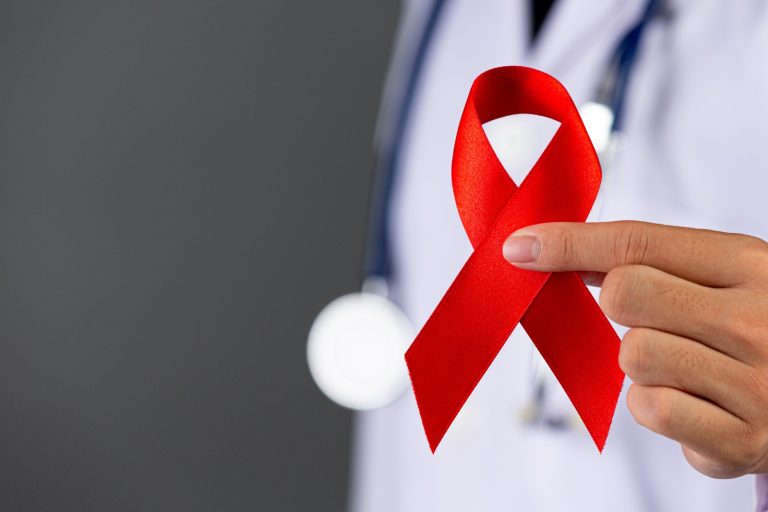HIV/AIDS and sexually transmitted infections are topics that are not openly discussed by many people. As a result, most of us do not have enough knowledge about them. I am sure you would like to know what HIV/AIDS and sexually transmitted infections are, how they can spread from one person to another, how to identify them, whether there are any treatments for them, and how we can prevent getting HIV and STIs.
Let’s talk about HIV first. Up to now, Sri Lanka is one of the few countries in our region with a very low number of HIV cases. But during the last 2 years, we have seen an increase in the reported number of cases. Therefore, it is better for all of us to be aware of these diseases.
HIV is caused by a virus that can weaken our immune system. It spreads from one person to another mostly through unsafe sex. The virus can also spread through blood by sharing needles and equipment contaminated with infected blood. If a woman gets infected with HIV, she could pass it on to her baby if she is not on treatment.
Once someone gets infected with HIV, they could experience flu-like illness 2-3 weeks later, but some may not show any symptoms. This flu will get better without any treatment, and thereafter, most people remain without any symptoms for 8-10 years where they look healthy from outside but could spread HIV to others. Once their immunity gets weakened due to the virus, they will start getting infections and diseases like skin rashes, fever, weight loss, TB, pneumonia and sometimes cancers.
HIV-infected people may not show any symptoms for a long time, and even if they show symptoms, they are not specific to HIV/AIDS. Therefore, the only way to accurately identify HIV is by a special test called an HIV test. You could consult a doctor and get an HIV test done at a government or private hospital. The test is available in most government and private hospitals. If HIV is identified early, there are very effective medicines to control the virus through special drugs called Antiretroviral Therapy (ART). If an HIV-infected person takes ART as recommended and controls the virus, they can live a normal, healthy life and carry on with their day-to-day activities without any issues, and the medications need to be continued lifelong. Therefore, what is important is to go to a qualified doctor and get tested for HIV without delay and, if HIV positive, to start treatment as soon as possible and continue treatment for the rest of your life.
I believe you would also like to know how one can stay away from HIV. HIV mostly passes on from one person to another through unsafe sex; therefore, limiting your sexual relationships to a faithful one partner is the best way to protect yourself from getting HIV. Using condoms correctly can also protect you from getting HIV. It has also been found out that those who take medications according to medical advice have the number of HIV viruses in their body reduced to undetectable levels after 6 months, and HIV transmission will not happen through such people. We call it U = U; Undetectable equals Untransferable.
Not only HIV, but other sexually transmitted illnesses can also be passed through unsafe sex. Discharge, wounds, or warts in the genital area are some of the common symptoms of STIs. Many STIs may not show any symptoms but can affect your health in a bad way later if not properly treated. If identified early, many STIs can be effectively treated and cured. Therefore, if you have had any unsafe sex, it is best to consult a qualified doctor and get yourself checked for sexually transmitted diseases and receive the correct treatment. Through correct and quick treatment for STIs, we can also reduce the risk of getting HIV.
Difficulty in having sex or sexual dysfunction is another condition that many people are reluctant to seek medical advice for, and some are suffering a lot with these problems. Now there are many successful ways to treat such problems. Some go to pharmacies and buy medicines without recommendations from a doctor. It is always important to go to a qualified doctor, undergo a proper assessment to identify the underlying problems, and then get necessary treatments to minimize the risks and enjoy a healthy sex life.
Most people are reluctant or embarrassed to talk about their sexual behaviors with a doctor, and some think the doctor will judge them based on their sexual behaviors. But the doctor will never judge you and will use that information only to help you, and the doctor will always protect the confidentiality of the information that you provide.
If we are to prevent the spread of HIV in society, it is important not to stigmatize infected people or treat them differently. The stigma will prevent people from getting tested for HIV, seeking treatment, and ultimately lead to increased deaths and facilitate the spread of infections in society. Therefore, it is very important for all of us to come together and fight against sigma and discrimination against HIV and ensure the human rights of people living with HIV. By doing so, all of us can contribute to ending AIDS in Sri Lanka by 2030!
Therefore, I invite all of you to educate yourselves about HIV, STIs, and sexual problems and seek medical advice when necessary and play your role for a better Sri Lanka!




